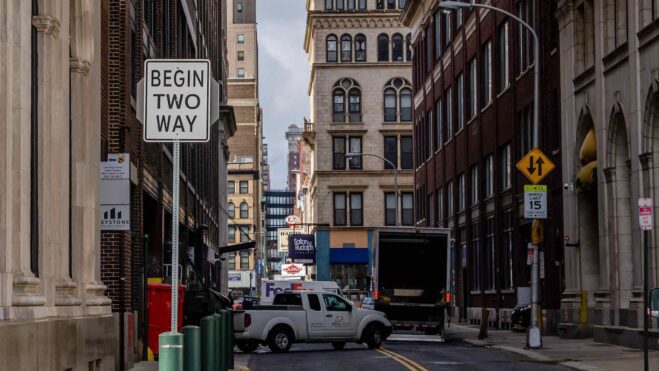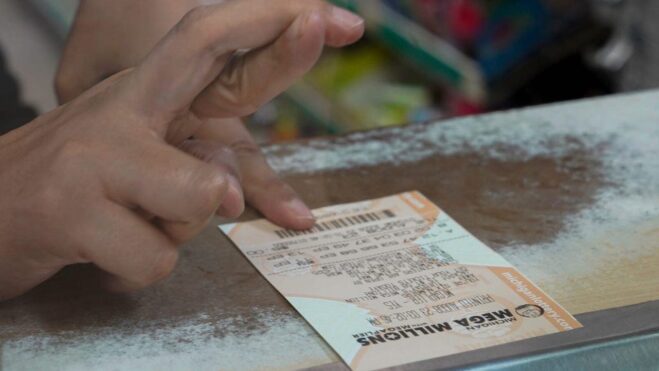7 Reasons We’ll See A New State Launch Online Lottery Before Online Casino
Considering competition, commitment required, and the strength of the opposition
4 min

The time is now for the annual pilgrimage of online gambling proponents to preliminary state congressional hearings (or live-streams) on iGaming bills and hoping maybe, just maybe, this will be the year that real-money online casinos garner enough support in a new state.
Indiana is the early frontrunner right now. But, really, that’s just because its iGaming bill is the first to pass an initial hurdle this legislative session. We’ve seen this song and dance before.
Some online casino bills make some progress … but in recent years have routinely run into insurmountable obstacles. Thus the progress toward expanded legal iGaming in the U.S. has ground to a screeching halt and only time will tell how long it takes for legislation to finally secure a governor’s signature.
The online lottery landscape is a different scene entirely. Sure, there is opposition to iLottery. But the path to legalization doesn’t face the same kind of hurdles as online casinos.
So here’s a prediction: There will be a new online lottery launch before a new iGaming launch.
Here are seven reasons why.
The country is already more comfortable with lotteries
Acceptance of lottery gaming is miles ahead that of casino gaming across the U.S.
Case in point:
- 45 states have a lottery (and Nevada is discussing the possibility, again)
- 24 have commercial (non-tribal) casinos
That nearly 2-to-1 ratio speaks to the widespread presence of lotteries, compared to resistance to a spread of casinos. (Yes, a handful of the 26 states without commercial casinos have tribal casinos, but nothing state-regulated — and the state would be the one regulating online casinos, not the tribes.)
It’s not far-fetched to assume a lesser version of that widespread vs. tempered acceptance applies to the online platforms for lotteries and casinos, too.
iLottery opponents are less powerful
“The push and pull over online lottery sales hurting retail businesses that sell lottery tickets will be the thing that slows down adoption,” U.S. gambling consultant Dustin Gouker told Lottery Geeks earlier this month.
While this is true, the power-brokers trying to slow down online lottery adoption don’t usually have the financial clout — translation: influence — of the power-brokers trying to slow down online casino adoption.
For instance: Casino giant Cordish Companies is a significant iGaming opponent. It operates Live! brand casinos and two Hard Rock casinos in Florida, among a variety of other mixed-use entertainment districts across the country. Its political and financial capital are arguably the biggest reasons New Hampshire — where Cordish Companies was recently approved to operate a retail casino — is no longer seen as a realistic near-term candidate for iGaming.
Powerful tribal casino coalitions — such as those in Oklahoma and California — can essentially bathe in all the money they pull in. Think they’ll be eager to lose some of that revenue to DraftKings Casino or Caesars Palace?
The biggest iLottery opponents, meanwhile, are often state retailer associations. These coalitions formed of the shops and convenience stories that sell retail lottery tickets certainly have political cache. Heck, they’re the main reason New Jersey now appears likely to pull out of its online lottery plans. But they don’t have the same financial leverage iGaming opponents do and, ultimately, aren’t as tall of a hurdle.
It’s just … easier
This one is pretty straightforward.
Adding online responsibilities to an existing lottery commission — which is already used to regulating lottery gaming — is a relatively easy lift.
Adding iGaming regulation responsibilities to a state lottery commission, or even creating a new regulatory body to oversee online casinos, is quite a bit heavier. New regulatory frameworks will need to be crafted. New positions will need to be hired.
People like low-hanging fruit.
Online lottery is the apple on the 10-foot apple tree. Online casinos are the bananas on the 30-foot banana trees.
It may already be *technically* legal
Plot twist!
Your state may already technically allow online lottery. It just doesn’t offer it. Currently.
We saw this recently with Tennessee. No new bills or regulation were enacted in Tennessee, yet the state’s lottery began selling Powerball tickets online earlier this month.
How?
A creative interpretation of existing state code.
“The Lottery implementation law has always allowed for the Lottery itself to sell tickets and accept any form of payment,” Tennessee Education Lottery Commission spokesperson Kym Gerlock told Lottery Geeks, “but legislative action remains necessary to permit retailers to accept anything other than paper or coin currency.”
This happened previously in Minnesota. So you’d best believe other states could do this exact thing, if they want to and don’t have any motivated opponents like, perhaps, a coalition of local convenience stores.
A small step toward broader iGaming
Online lottery legalization could also be an incremental step toward online casino legalization.
In Indiana, Ohio, and New York, for instance, there are currently iGaming bills that would legalize both online casinos (the meat of the bills) and online lottery (an additional item).
In situations like these, think of iLottery as a domino.
Perhaps in bill discussions and negotiations, the legislation gets watered down. Eventually online casinos may get stripped from the bill. But lawmakers may still want to pass something to generate extra money for state coffers and at least seem like they’re making progress and staying with the times.
Launching a new online lottery platform — with, again, an easy lift in simply assigning online duties to an already existing lottery commission — could fit the bill. (Literally.)
Some lawmakers may already think it’s legal
Let’s be real here: Some lawmakers may already assume online lottery is legal in their state, making them less likely to be resistant when faced with a bill to actually legalize it.
You can thank lottery couriers for this.
Couriers, such as Jackpocket and Jackpot.com, make it feel like you’re playing the lottery online. But you’re not exactly. Really, the draw game tickets you buy via your phone are procured by courier agents at retail vendors in your state — you’re just orchestrating the process online.
But … most people (including lawmakers) have so much going on, they may not even be aware of the mechanisms.
I bought a Powerball ticket using my phone the other day. What do you mean there’s no online lottery in my state?
Couriers are legal in many states where there is no state-run online lottery platform, such as New York, Colorado, Minnesota, Ohio, and Texas.
Not a ton of out-of-state companies
This reason isn’t talked about enough.
One of iGaming opponents’ biggest rallying cries against online casino legalization is that it allows out-of-state companies (operators such as BetMGM, Caesars, etc.) to participate in a state and extract revenue that may not get injected back into that state’s economy. Are the benefits of the product to the state’s consumers enough to outweigh that?
That argument doesn’t exist in the online lottery discussion.
With an iLottery, the state lottery commission is the sole operator. All it has to do is contract a vendor — such as NeoPollard, Intralot, IGT, etc. — to provide a platform.
Think of it this way: The percentage of lottery spending from residents circulating through a state’s economy is much higher than the percentage of their online casino spending.






